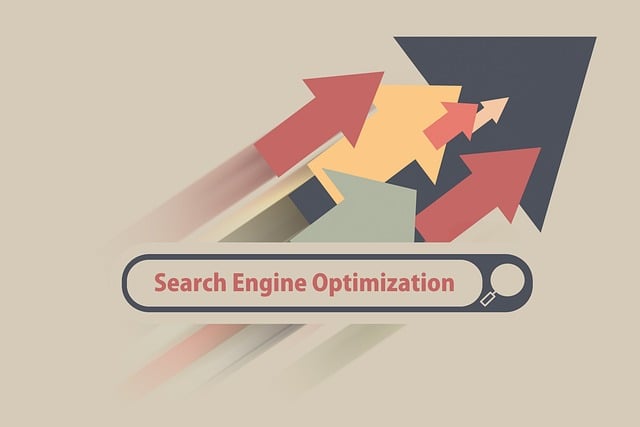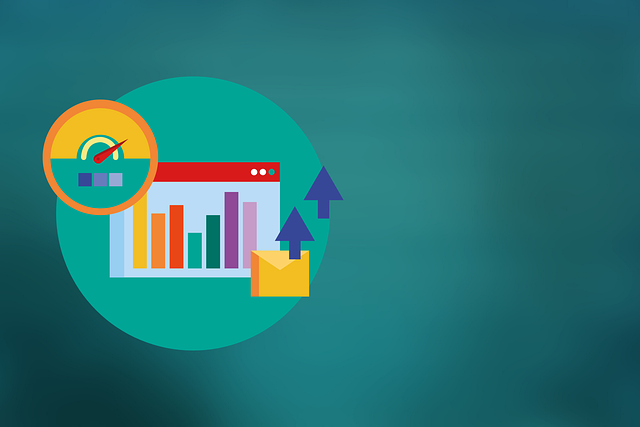Off-Page SEO is a powerful strategy to boost website rankings, focusing on external factors like backlinks, social media presence, and user engagement. Content marketing plays a pivotal role by creating valuable content to attract backlinks and enhance brand visibility. Key tactics include building high-quality backlinks through guest blogging and influencer collaborations, leveraging social media platforms for audience engagement, and monitoring SEO performance using tools like Google Search Console. Staying agile and adapting to search engine algorithm updates are essential in the dynamic digital landscape to maintain website authority and visibility.
In the digital marketing landscape, understanding Off-Page SEO is key to boosting your website’s visibility. This article delves into the crucial aspects of Off-Page SEO, exploring how external factors significantly influence search engine rankings. We’ll guide you through proven content marketing strategies, effective link-building techniques, and social media leverage to enhance online presence. Additionally, we’ll discuss guest blogging, performance monitoring, and adapting to algorithm changes for sustained success in a dynamic digital environment.
Understanding Off-Page SEO: The Role of External Factors

Off-page SEO refers to external factors that influence a website’s search engine rankings, going beyond the content and technical aspects of on-page optimization. It encompasses various strategies and actions taken outside of your website to enhance its authority and visibility in search results. One key aspect is building high-quality backlinks from reputable sources, as these act as votes of confidence for search engines. The more relevant and authoritative sites linking to yours, the better your chances of ranking higher for specific keywords.
Additionally, off-page SEO involves leveraging social media platforms, online directories, and influencer partnerships to increase brand awareness and drive traffic. Positive mentions, reviews, and shares on social media can significantly impact your website’s performance in search rankings. External factors also include user engagement metrics such as bounce rate and time spent on page, which search engines consider as signals of a site’s quality and relevance.
Content Marketing Strategies for Effective Off-Page Optimization

Content marketing is a powerful tool for enhancing Off-Page SEO, as it involves creating and sharing valuable content to attract and engage your target audience. By consistently producing high-quality, relevant material, businesses can establish themselves as industry leaders and earn natural backlinks from reputable sources. This strategy not only improves search engine rankings but also increases brand visibility and trustworthiness among potential customers.
Diversifying content formats such as blog posts, infographics, videos, and podcasts allows for broader reach and engagement. Collaborating with influencers or industry experts to co-create content can further amplify its impact, leading to more shares and backlinks. Additionally, promoting content through social media platforms and relevant online communities ensures that your target audience is exposed to your valuable resources, thereby strengthening your website’s authority and relevance in the eyes of search engines.
Building Quality Backlinks: A Cornerstone of Off-Page SEO

Building quality backlinks is a cornerstone of off-page SEO, and it’s crucial for boosting your website’s authority and visibility. High-quality backlinks from reputable sources signal to search engines that your content is valuable and trustworthy, enhancing your site’s reputation in the eyes of algorithms. These links not only drive traffic but also help search engine crawlers discover and index your pages more efficiently.
To build quality backlinks, focus on creating exceptional content that naturally attracts links. This can involve conducting thorough research to produce in-depth, informative pieces, leveraging guest blogging opportunities on influential sites within your industry, or offering valuable resources that other websites are eager to link to. Engaging with influencers and industry leaders and fostering relationships can also open doors to earning backlinks through mentions, collaborations, or sponsored content agreements.
Leveraging Social Media for Boosting SEO Visibility

In today’s digital landscape, social media platforms serve as powerful tools for enhancing Off-Page SEO strategies. By actively engaging with audiences across various channels, businesses can significantly boost their online visibility and reach a wider audience. Each platform offers unique opportunities; for instance, Instagram’s emphasis on visual content allows brands to showcase products creatively, while Twitter’s real-time conversations facilitate quick interactions and link-sharing.
Influencer collaborations and user-generated content are additional social media strategies that can drive SEO efforts. When influencers promote a brand or product, it generates organic interest and attracts new visitors to the website. User-generated content, such as customer reviews and testimonials shared on social media, adds credibility and encourages potential customers to engage with the brand, ultimately impacting search engine rankings positively.
Guest Blogging: Crafting Valuable Content for Link Acquisition

Guest blogging is a powerful strategy within the realm of off-page SEO, focusing on crafting valuable content for link acquisition. By contributing high-quality articles to reputable websites in your niche, you not only gain exposure to a new audience but also earn backlinks that can significantly boost your website’s authority and visibility in search engine results. The key is creating content that resonates with the target audience and aligns with the host site’s themes, ensuring a natural and relevant link placement.
Effective guest blogging involves thorough research to identify potential platforms, engaging with influencers and industry leaders, and producing content that offers genuine value. Whether it’s sharing insights, presenting case studies, or providing how-to guides, each post should aim to educate, entertain, or inspire readers. As a result, the host site benefits from increased traffic and engagement, while your website enjoys enhanced SEO performance through these valuable backlinks.
Monitoring and Analyzing Off-Page SEO Performance

Monitoring and analyzing off-page SEO performance is a vital step in understanding the effectiveness of your content marketing strategies. This involves tracking backlinks, social media mentions, and brand visibility across various online platforms. By utilizing tools like Google Search Console, Ahrefs, or SEMrush, you can gain insights into where your website stands in terms of authority and reputation. These metrics help identify high-quality backlinks from reputable sources, which are crucial for improving search engine rankings.
Regularly assessing off-page SEO performance allows content marketers to make data-driven decisions. For instance, if a particular piece of content consistently generates high-value backlinks, it indicates success in building a robust online presence. Conversely, identifying areas of weakness can prompt adjustments in content strategy, such as creating more shareable assets or engaging in influencer collaborations to boost brand visibility and drive organic traffic.
Staying Updated with Algorithm Changes: Adapting Your Content Marketing

In the dynamic landscape of digital marketing, search engine algorithms evolve constantly, reshaping how content is ranked and discovered. Staying ahead requires content marketers to be agile and adaptive. Each update from platforms like Google reflects a deeper understanding of user intent and behavior, demanding that strategies evolve accordingly. For instance, recent changes have emphasized high-quality, diverse backlinks from reputable sources—a key aspect of Off-Page SEO—as indicators of reliable content. Marketers must stay informed about these shifts, ensuring their content marketing efforts align with the latest algorithm preferences.
Adaptability involves regularly reviewing and updating content to maintain relevance and optimize for new ranking factors. This could mean refining existing pieces to incorporate trending topics or creating fresh, unique content that addresses emerging user queries. By embracing agility in content creation and promotion, marketers can ensure their strategies not only keep pace with algorithms but also enhance the overall visibility and authority of their online properties in a competitive digital arena.
